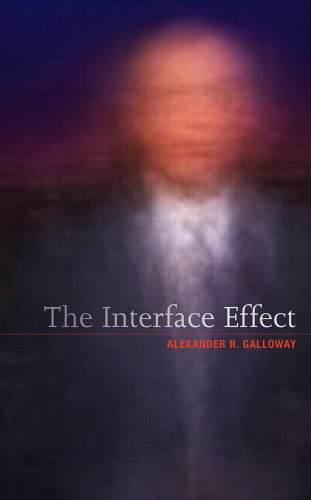Customer Services
Copyright © 2025 Desertcart Holdings Limited
Desert Online General Trading LLC
Dubai, United Arab Emirates


Full description not available
J**N
Fascinating read
The work done by Galloway is mostly effective. The only times that The Interface Effect falls short are he's there are points where more in-depth analysis would have been helpful in strengthening the ideas of the book. That said, the book is approachable. It'll be a great read for people studying technology and communication.
P**O
Great book
Very complex and profound book, analytically dense, most up-to-date in the digital field, investigates interface as a reconstructive threshold, connecting two different worlds, implying a hermeneutic dynamics (interpretation). Communication is more than technical formalisms (these are grounding elements, of course, in the Shannon’s and Turing’s tradition) – it involves complex human expression that needs transformative passages between connection levels. I appreciated and learned very much. It’s a good example of how sophisticated can be analytical elaborations in the human sciences, when referred to new media.
P**É
Rebooting methodology
In this very compact and rich book, Galloway shows great attention to methodology and discusses other essays at lenght. By rethinking most of the common place in media theory and showing their shortcomings in describing the computer interface, he sheds a lot of light on our relationship with machines under the ''society of control''. A work of great rigor with an elegantly unfloding argument.I would recommend this book to anyone interested in media, politics, aesthetics and even gaming.
E**E
Out there
A bit too out there for me on digital media. If you are in academia and trying to argue FOR digital humanities against the doubters and techno-phobes than his perspectives and arguments are perhaps useful. However, he ignores access to technology to a fault. Very dry, very academic, very smart but very shaky as an effective argument due to what he does not address.
**U
Galloway is bae
Started this book while in 12th grade and with little to no experience with academic writing and no experience in media studies / cultural studies. At that time, I was hellbent on reading all over the place (wherever my networks take me) - so that I would feel satisfied in my choice of major.While this goal helped supercharge my motivation--ultimately enough to finish this book; having read around (and watched youtube lectures), of galloway's works this one is my favoriteIf you're an old-school academic, a theorist working in a bubble and are out-of-touch w/ modern technology & culture at large, working in the fields of: *Anthropology *Art History *Computer Science *Physics *MathematicsI say this:- This book will probably piss you off on first read- It may speak slightly over your head, partially because of the vocabulary, though for me-- I was much more likely to get lost and feel totally bewildered by Galloway's intense stylistic turns. In short -- his vocab isn't hard, but his melodramatic 'prophecy-like' quips seem to get more 'screen time', at the expense of more precise 'prefaces' for Galloway's arguments.The Interface Effect is practically essential reading in contemporary digital (media) cultural studies - perfect balance of Galloway's (often) experimental, non-categorizable, non-STEM approach towards technology- with the perfect amount of the ~~~~scary~~apocalyptic~ post-internet theorist insight to keep you from throwing the book across the room.-
T**E
outstanding
another outstanding work from the author of Protocol, continuing the debate with Wendy Hui Kyong Chun, and entering new terrains of interfaciality
E**W
OK
The amount of topics covered by author is decent, its first half was enjoyable, more about the interfaces themselves but the other is like a different book disconnected from the rest. Unfortunately many times he jumps between ideas (interfaces, new media, politics, sociology, philosophy) and takes for granted a lot of references so I had difficulties understanding what I'm reading. Maybe I don't have enough knowledge to gain complete understanding.
Trustpilot
2 months ago
3 weeks ago